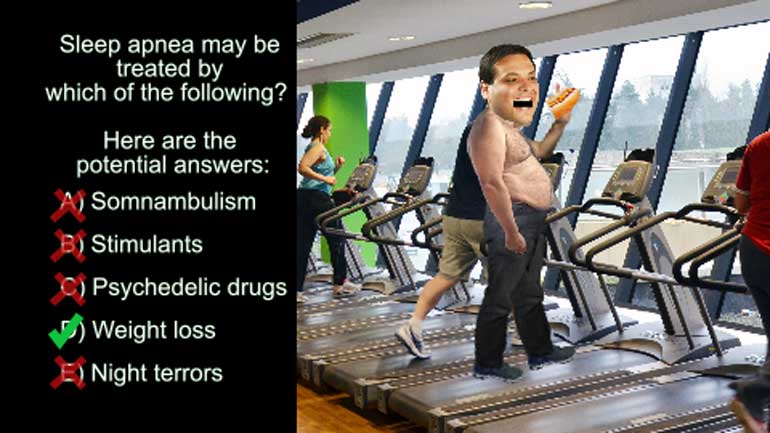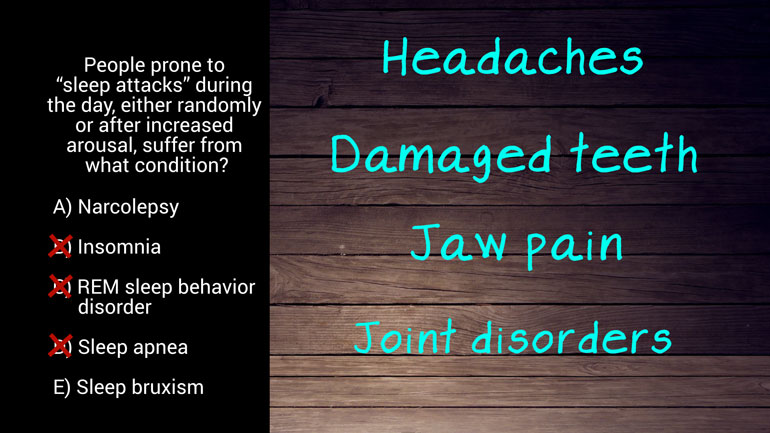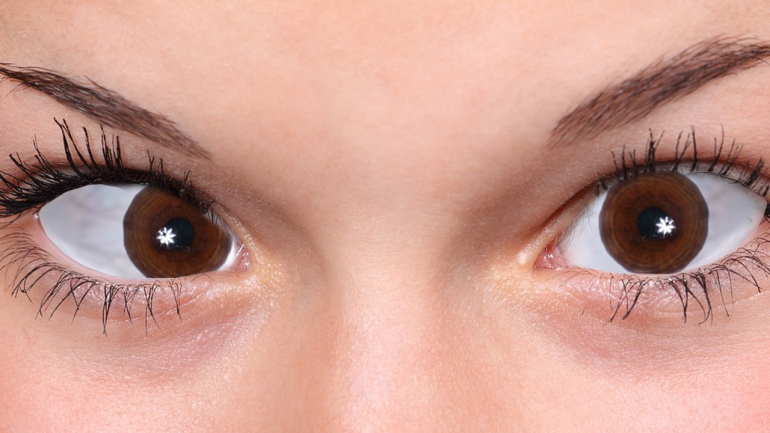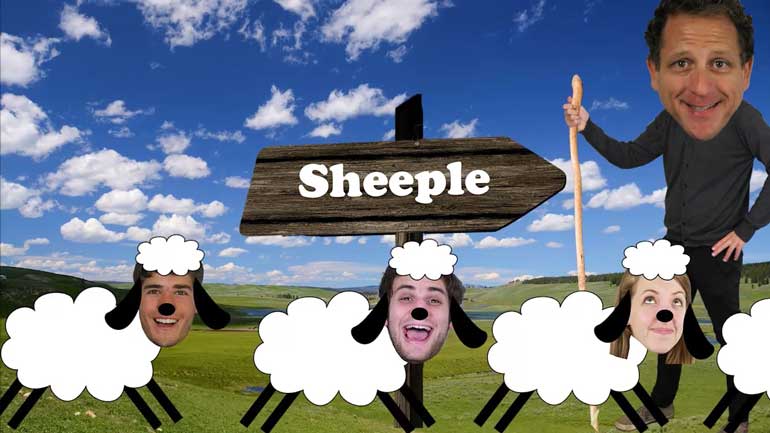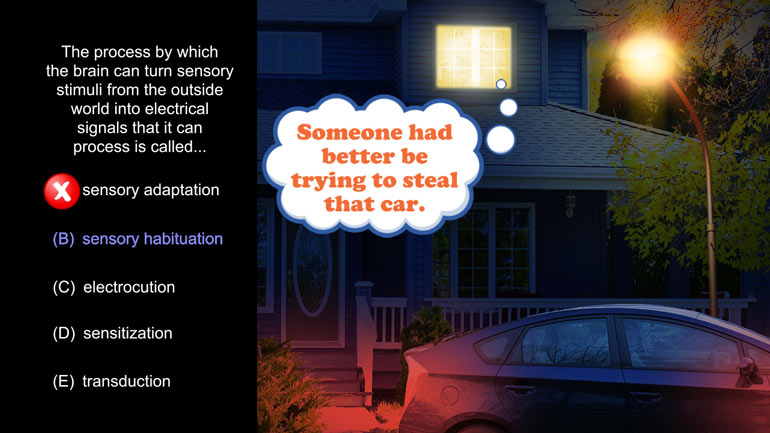ShmoopTube
Where Monty Python meets your 10th grade teacher.
Search Thousands of Shmoop Videos
Sleep and Dreaming Videos 5 videos
AP Psychology 1.1 States of Consciousness. Who conducted research on REM sleep deprivations?
AP Psychology 3.2 States of Consciousness. Which brain structure acts as the bodies internal clock?
AP Psychology 2.5 States of Consciousness. Sleep apnea may be treated as which of the following?
AP Psychology 2.5 States of Consciousness 19 Views
Share It!
Description:
AP Psychology 2.5 States of Consciousness. Sleep apnea may be treated as which of the following?
Transcript
- 00:04
And here's your shmoop du jour brought to you by sleep disorders and [Boy sleeping at a desk]
- 00:06
coffee which go together like final exams and coffee or red-eye flights and
- 00:11
coffee or newborn babies and coffee we just really think coffee goes with [Man dragging luggage with coffee]
- 00:16
pretty much everything.. sleep apnea may be treated by which of
- 00:20
the following and here are the potential answers.....
Full Transcript
- 00:26
sleep apnea is a sleep disorder in which the sufferer is breathing either [Man breathing heavily while sleeping]
- 00:30
repeatedly stops and starts or becomes extremely shallow during sleep it can
- 00:35
potentially lead to serious complications including serious fatigue,
- 00:38
high blood pressure, heart problems, liver problems or even type-2 diabetes or can
- 00:43
just make the person nor very very very loudly bearing all that in mind we can [Man sleeping and woman throws pillow at him]
- 00:48
easily see why night terrors aren't going to be a treatment method for such
- 00:51
a disorder because it doesn't make a whole lot of sense, goodbye E.. it's also
- 00:56
hard to imagine how the use of psychedelic drugs, drugs like LSD and
- 01:00
peyote that can cause serious hallucinations would help with sleep [Boy riding unicorn across a rainbow]
- 01:04
apnea and stimulus or uppers like cocaine and caffeine wouldn't help because
- 01:08
their psychoactive meaning they affect brain function and while some stimulants
- 01:14
are used as medicine like for treating ADHD since sleep apnea is a problem of [Windpipe highlighted]
- 01:18
the windpipe these aren't likely to do any good either
- 01:21
what about somnambulism..sounds
- 01:26
fancy complicated and maybe medicine huh well it comes from the Latin somnus
- 01:31
meaning sleep and ambulator meaning to walk so it's really just a fancy word [Girl sleep walking]
- 01:35
for sleepwalking and while standing and walking around could potentially help
- 01:39
open up the windpipe of a sleeping individual we'd be hard-pressed to figure
- 01:42
out how a doctor would prescribe sleepwalking cross out A perhaps a bit
- 01:47
surprisingly weight loss is the prescribed answer of today.. One of the
- 01:51
most common causes of sleep apnea is being overweight that's fat deposits [Man eating hot dogs]
- 01:55
around the airway can obstruct regular breathing
- 01:57
losing weight would definitely help remedy the situation assuming this is
- 02:02
the actual cause could also be aliens... [Man drops down from alien spaceship]
Related Videos
AP Psychology 1.1 States of Consciousness. Who conducted research on REM sleep deprivations?
AP Psychology 2.2 Social Psychology. Which of the following was an independent variable manipulated in Asch's research?
AP Psychology 1.1 Personality. According to Freud, these three parts of personality are constantly in conflict.
AP Psychology 1.1 Sensation and Perception. The process by which the brain can turn sensory stimuli from the outside world into electrical signals...
AP Psychology 1.1 Social Psychology. Which of the following best describes social psychology?


